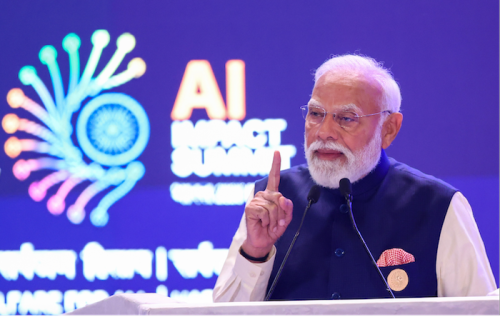Finance shapes the world.
The only question is: in which direction?
Every investment decision, every capital allocation is a political act.
In 2025, amid accelerating climate, social, and geopolitical crises, continuing to finance without ethics is not just irresponsible — it is suicidal.
Neutrality is no longer an option.
Responsibility must become the norm.
For too long, finance saw itself as an external referee, detached from real-world consequences.
Today, the facts are undeniable:
- 90% of carbon emissions are linked to economic and financial decisions.
- Unequal access to finance deepens social divides.
- Lack of transparency fuels speculation and systemic crises.
- 1% of the population now owns nearly twice as much wealth as the remaining 99% combined (Oxfam, 2024).
- Global debt has reached a record $315 trillion, or 336% of global GDP (Institute of International Finance, 2025).
- 72% of citizens in G20 countries believe the financial system is unfair and serves only the most powerful (Edelman Trust Barometer, 2024).
To continue as before is to betray future generations.
The dominance of rent-seeking speculation — where financial gains are pursued without creating real economic or social value — has widened inequalities and fueled public distrust.
In contrast, responsible finance is rooted in value creation: investing in innovation, sustainability, and human potential.
The choice is clear: we can continue feeding a system that extracts without building, or we can finance a future that restores balance, opportunity, and trust.
But another path is possible.
A different kind of finance is already emerging.
On April 22nd, during a high-level conference at Harvard University, leading scholars, policymakers, and business leaders came together to sign the Boston Finance Accord for 24/7 AI Governance — a foundational declaration for building a new global order anchored in ethics, transparency, and inclusion.
This text follows that milestone moment.
That same day, the Boston Ethics Finance Protocol (BEFP), developed by experts from Harvard and MIT, was officially presented.
This document is not just a reform.
It is a renaissance — aiming to return finance to its true mission: serving the common good, rebuilding trust, and restoring hope — 24 hours a day, 7 days a week.
Through the BEFP, we are laying the foundation for a responsible financial revolution:
- 90% bias-free financial decisions by 2028.
- 100% blockchain traceability for every transaction.
- 20% increased access to finance for underserved populations.
- 50 cybersecurity hubs to ensure digital financial stability.
These are not promises.
These are measurable, verifiable commitments.
Today, we issue a clear call to action:
- To investors: demand real, audited ESG standards — not greenwashing.
- To corporations: align your business models with planetary boundaries and societal needs.
- To governments: accelerate the adoption of global ethical finance standards, starting with the G7 and G20.
Because there are only two futures ahead:
One driven by greed and fragmentation.
Or one built on responsibility, transparency, and equity.
The time to act is not tomorrow. It is today.
And finance can no longer afford to be a spectator.
It must become the architect of a sustainable future.
Responsibility or chaos.
The choice is ours.
The time is now.
Michael Dukakis, Former Governor of Massachusetts, Co-Founder of the Boston Global Forum.
Élisabeth Moreno, Chairwoman of Ring Capital, former Minister for Gender Equality, Diversity, and Equal Opportunities (France).











